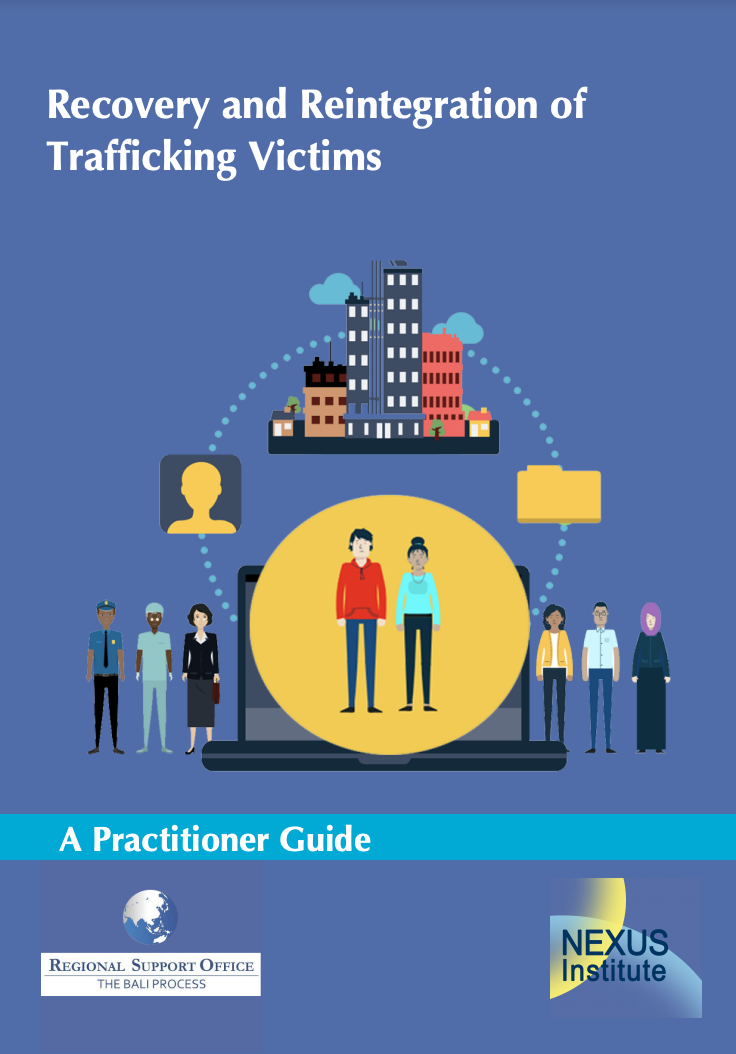This Practitioner Guide presents existing research and evidence on the recovery and reintegration of trafficking victims, including challenges faced and practices that can be mobilized to enhance reintegration outcomes. It is part of the NEXUS/RSO Practitioner Guide series: Improving the Identification, Protection and Reintegration of Trafficking Victims in Asia, which shares knowledge and guidance on different aspects of trafficking victim protection, including:
• Trafficking victim identification
• Trafficking victim protection and support
• Recovery and reintegration of trafficking victims
• Special and additional measures for child trafficking victims
This series is drafted by NEXUS Institute and published jointly by NEXUS Institute and the Regional Support Office of the Bali Process (RSO). Practitioners from Bali Process Member Governments of Australia, Indonesia, Malaysia, Philippines, Thailand and Vietnam contributed to the development of these guides in a virtual roundtable discussion convened by the RSO in April 2021. The project is generously funded by the Australian Department of Home Affairs, through the RSO. The series is available on the NEXUS Institute website and RSO website.
This guide is for practitioners in Bali Process Member States as well as further afield, seeking to better understand the recovery and reintegration of adult and child trafficking victims. This includes social workers and social assistants, healthcare practitioners, psychologists and counselors, child protection specialists, lawyers and paralegals, teachers and school administrators, vocational trainers, job counselors and business experts and public administrators. This Practitioner Guide will also be useful for policymakers tasked with improving practice and procedures in the recovery and reintegration of trafficking victims.

